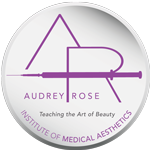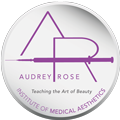Aesthetic or cosmetic nurses, like all nurses, make a difference in the lives of those they serve. As a person who pursues this job, you will aid others by providing non-invasive, in-office treatments such as injectables and skincare.
Aesthetic nurses help or execute operations typically done by cosmetologists and aestheticians but are not part of their practice area. To assess and monitor treatment, they’ll require extensive and in-depth knowledge of healthcare. Botox injections, chemical peels, skin resurfacing, micro-needling, and laser treatments are just a few of the options available to patients.
It is possible to have a successful and fulfilling job as an aesthetic/cosmetic nurse. A nurse injecting Botox and lip fillers for patients who wish to look younger may come to mind when someone thinks of cosmetic procedures. Aesthetic nursing, however, goes far deeper than that. Patients seeking cosmetic operations may be depressed or anxious about their appearance or overall well-being for many reasons; as well as empathy for their patients, aesthetic/cosmetic nurses should have a calm, caring demeanor. Here are four steps to becoming an Aesthetic/Cosmetic Nurse. But before starting with the four steps to becoming an aesthetic or cosmetic nurse, it is essential to know the details of an aesthetic/cosmetic nurse.
What is an Aesthetic/Cosmetic Nurse
Aesthetic/cosmetic nurses are licensed practical nurses who specialize in aesthetics and cosmetic procedures. Botox neurotoxin injections, photo facials, dermabrasions, micro-needling, tattoo removal, and non-surgical body contouring are examples of non-invasive cosmetic procedures.
Typically, cosmetic dermatology and plastic surgery nurses work in private practices or medical spas. There is a broad spectrum of people who seek cosmetic nurses’ services to improve their appearance and sense of self-worth.
Medical aesthetics operations are in high demand, especially among men, who make up most of those seeking treatment.
What Do Aesthetic/Cosmetic Nurses Do
Plastic surgeons and dermatologists rely on the assistance of aesthetic/cosmetic nurses when performing cosmetic operations. Regardless of what type of operation is used, the goal is always to make patients look better.
While some patients seek therapy for medical reasons, others do so for the boost in self-esteem and rejuvenated appearance that comes with plastic surgery.
When working full-time or part-time, aesthetic/cosmetic nurses can expect to be responsible for the following duties:
Before providing services, doctors consult with patients, organize appointments, potentially interview clients, and run medical tests.
You will need to examine the skin to look for signs of aging or other health issues. Preparing for surgery and caring for the patient after that and participating in medical procedures and surgeries to assist the physician. Sterilization and preparation of surgical tools and operating rooms. Botox and filler injections, laser hair removal, chemical peels, dermabrasion, CoolSculpting, tattoo removal, and more are available.
Cosmetic nurses help doctors and surgeons at dermatology and plastic surgery clinics, medspas, and operating rooms in hospitals. Surgery nurses’ schedules can be thrown off by emergencies or bad responses to treatments, but for the most part, aesthetic nurses keep regular hours and don’t work nights.
Aesthetic nurses not only have the opportunity to work in a setting committed to enhancing patient well-being, but they can also establish long-term relationships with patients who return for follow-up care or to explore other treatment options.
In medical aesthetics, nurses can watch how their treatments improve patients’ appearance and the boost in self-confidence they receive due to meeting their personal aesthetic goals.
The Four Steps
First Step
You will need a two-year associate’s degree in nursing (ADN), or a four-year bachelor of science in nursing (BSN) will get you started on the path to becoming an aesthetic/cosmetic nurse.
Along with the national push for advanced practice nurses, some nurses choose to continue their education beyond the BSN and pursue a master’s degree in nursing.
Second Step
You need to pass the RN licensing examination
to get licensed in more than one state, you’ll need to pass the NCLEX-RN exam after graduating from an accredited nursing program with an RN degree.
Third Step
You need to gain experience. You need to spend at least two years working with a plastic/aesthetic/cosmetic surgeon or dermatologist, or ophthalmologist who is board-certified in one of these specialties.
Fourth Step
You need to have a certification as an aesthetic nurse specialist by passing the examination. Consider obtaining the Certified Aesthetic Nurse Specialist certificate from the Plastic Surgical Nursing Certification Board if you want to work as an aesthetic/cosmetic nurse.
To get certified, you must pass a test that the PSNCB usually offers twice a year, in the spring and the fall. The PSNCB certificate does not necessitate additional training like some other credentials.
Some Notes
It’s mandatory for those who desire to specialize in aesthetic nursing to be recertified every three years. As a minimum, the recertification process calls for 45 contact hours, with at least two of those hours dedicated to patient safety, as well as 30 contact hours devoted to at least one of the following core specialties: optometry, plastic/aesthetic surgery; plastic/aesthetic surgery; dermatology; and facial plastic surgery.
In general, it takes 4-7 years to become a cosmetic/aesthetic nurse (it depends upon the type of degree obtained and length of time spent passing the NCLEX-RN). Nurses are also choosing to pursue their Master of Science in Nursing as part of the national movement to advance their professions by obtaining additional degrees.
Why Should You Become An Aesthetic/Cosmetic Nurse
However, while many aspiring nurses have the same goal in mind — helping or improving the lives of others — not all nursing specializations are suitable to everyone. While some people thrive in the high-stakes, adrenaline-filled emergency care environment, others may get overwhelmed or find the stress of such a specialization harmful to their general health or family life—emergency medicine doctors.
In aesthetic nursing, highly trained nurses have the chance to spend more time with repeat patients and develop relationships while making those patients feel more positive about themselves. Aesthetic nursing Nurses and patients alike will reap the rewards, which have the potential to be life-changing.
If you are ready to take your first step to become an Aesthetic/Cosmetic nurse, the Audrey Rose Institute can help and guide you to your journey; all it takes is to book an appointment and start your journey now with The Audrey Rose Institute, the medical aesthetics school of today.








